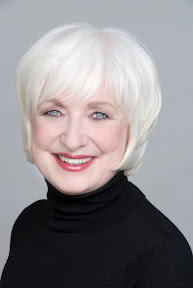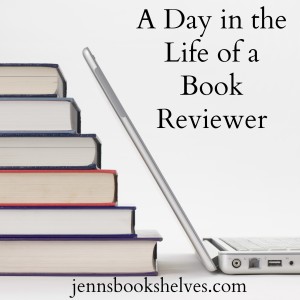Yesterday, I reviewed the Gildiner’s After the Falls. Today, I’m excited to share an interview with Cathy. In addition, one lucky person can win a copy of the book. Read below for more details! So without further ado….
Q: Your teen antics were pretty wild. What made you decide to put your energy into something that had meaning, i.e. Civil Rights Movement?
 A: It is interesting that you thought my teen antics were wild. It must be my personality, but I never saw them as that way. I have always been a hard worker and wanted to work early. That combination of work ethic combined with not knowing anything about cooking caused the fire at the donut shop. At Howard Johnson’s where I was fired and then rehired the lack of cooking knowledge was at the root of the problems as well.
A: It is interesting that you thought my teen antics were wild. It must be my personality, but I never saw them as that way. I have always been a hard worker and wanted to work early. That combination of work ethic combined with not knowing anything about cooking caused the fire at the donut shop. At Howard Johnson’s where I was fired and then rehired the lack of cooking knowledge was at the root of the problems as well.
My first ‘antics’ that included police involvement was civil rights related. It was my adolescent brain trying to be part of civil rights when we painted black garden jockeys white. I was trying to say that it was ridiculous to have slaves from the past on your front lawn. My method was clumsy but not my sentiments. I see that episode as the seed of future involvement in the movement.
Q: In your author’s note, you write that you have conveyed the “emotional truth of my experiences” while maintaining the privacy of the people involved. How important was this to you? To be true to yourself but protect those you write about?
A: It was very important. I gave a draft of After The Falls to the close friend I called “Leora” in the book. I wanted to get her assurance that the book didn’t reveal too much about her or her family. Once I had her approval I felt I could rest more easily. When I write my feelings or my memories they are not the necessarily feelings or memories of anyone else. When I write them as ‘truth’ they are only my truth. Memory is tricky. Have you ever had a disagreement with your parents or brothers or sisters about a memory? People remember things differently. I was not revealing everyone’s past. I was recounting my own memories. Therefore, I disguised people by changing their names, or their ethnicity, and sometimes their parent’s jobs, etc. I did not change incidents or the emotional content as I remembered them. There are also legal issues at stake in published material. I had to consult lawyers, etc. and they let me know how important it is to offer characters anonymity.
Q: This is a question I’ve been dying to ask!How did you end up on the FBI suspect list?
A: My FBI investigation had to do with my involvement with Laurie who was a major player in the civil rights movement. The Young Christian Leadership Conference was under surveillance as was the NAACP (The National Association for the Advancement of Colored People). Then when the more strident Black Power group called SNCC (Student nonviolent coordinating committee) the FBI stepped up the surveillance. Finally when the Black Panthers were formed the FBI investigated each one. It is now a known fact that Martin Luther King and every civil rights leader in the 50’s and 60’s were investigated by the FBI.
I was a bit player but I was persistent and I had an important boyfriend in the movement at the time. The FBI has files on white people in the movement dating back to the 50’s. They took pictures at many political meetings and if your picture appears on several occasions you are on the suspicion list.
Q: Out of all the “personae” you had (FBI suspect, civil rights demonstrator, Howard Johnson’s hostess) which affected you most? Which one molded you into the person you are now, or was it a combination of all of them?
I think that all of those events had an influence on me. Since the memoir is about growing-up I wrote about each experience that nudged me toward adulthood. If I could summarize these influences, I would have to say that the job at the donut shop taught me that higher education was necessary. My father, my first boss, was never unfair or vulgar. Working for a boss who was rude and dehumanizing was awful and if I’d had to do it for a lifetime I’d have been depressed. It was after that powerless job that I began doing my school work in earnest. I saw what having no education got you.
At Howard Johnson’s I learned how a good company was run. I learned that you never left at night until everything was done. I also learned that if you were good at your job you could have more degrees of freedom. If you made improvements and your boss wasn’t threatened then you could work with ease. It was there I learned that hard work reaped rewards. Not everything was fair there, but the institution ran like clockwork.
My work in civil rights was enlightening and satisfying. There was more civil rights legislation passed in the 1960’s than ever before or since. It worked! I did, however, learn that even something as earnest as the civil rights movement will have opportunists. There were always the grandstanders who played for the camera and didn’t do any of the hard grass roots grunt work that took hours of time. Every volunteer movement, like any business has a hierarchy.
The FBI investigation was only shocking in that it seemed to me that I was hardly a threat to the world. I learned a tough lesson at that time. Any threat to those in power is going to be squelched. People in power want to stay there. I learned a lot about politics and government—more than I would ever have learned in a classroom.
Q: On your web site you indicate that you are now writing full-time rather than practicing as a clinical psychologist. How has that changed your life?
A: It is interesting that I get no more done now that I can write all day than when I was in full time practice. I don’t know why that is exactly. I guess that I had to plan my time very carefully when I was so busy with my practice. I had to get up at 5:00a.m. and could write until 8:00. Honestly, I managed to do in those three hours what takes me all day to do now! I think I was more focused then. I just let the words spill out on the page. I was also 10-15 years younger.
Freud talks about his years of ‘splendid isolation’ when no one had heard of him. He just wrote what he wanted and no one cared. In a mini-version I know what Freud means. Now that my books are published and on the best seller’s list, I am thrilled in one way, however in another I now have less time to write. Now I give talks and promote my book for several hours a day. When no one cared about me I just wrote to my heart’s content.
I have to say that I love just writing. I walk up to the third floor of my house where I am in the tree tops and look out my window and write whatever I want. At the end of each day I have the reward of having created something. It is a great feeling.
To wrap up this interview, I always try to share with readers pictures that are near and dear to the author I’m interviewing. They can be pictures of their reading spot, their office, etc.
Following is the photo submitted by Cathy:
“This is a picture of an event I did in Warkworth, Ontario, a small town where many of the wonderful residents are involved in the movement “Grannies for Africa.” I give talks around Ontario and give my proceeds to this cause. These women in the movement in Canada are themselves grannies and they support the African grannies who have inherited small children since so many mothers have died of AIDS.”
Now, on to the giveaway! Please fill out the form below to be entered! This contest will run through Friday, November 12. US & Canadian residents only, please.






One Response to Interview with Catherine Gildiner, Author of After the Falls